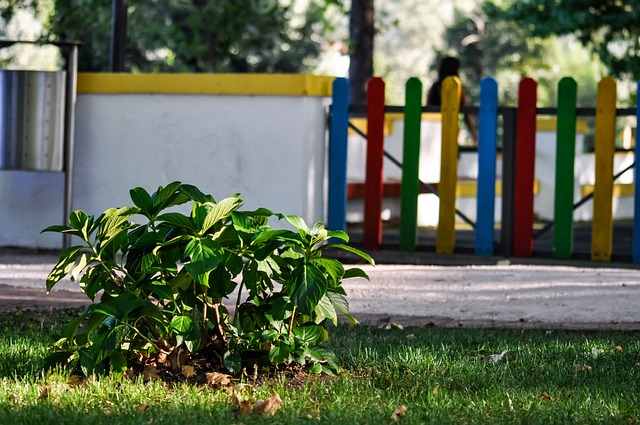Homeowners embracing eco-friendly yard care find Yard Waste Removal and Recycling a key component in reducing their environmental impact. By composting leaves, grass clippings, and food scraps, they divert waste from landfills and create nutrient-rich compost for gardening. Opting for natural pest control methods and organic lawn care products supports local ecosystems and reduces chemical use. Efficient watering practices and encouraging native plants further enhance sustainability while maintaining vibrant yards.
Many homeowners are increasingly looking for eco-friendly yard care options, driven by a desire to reduce their environmental impact. This trend aligns perfectly with the need for sustainable practices in our communities. In this article, we explore three key aspects of green yard care: understanding eco-friendly techniques, recognizing the importance of yard waste removal and recycling, and offering practical tips for homeowners eager to adopt more sustainable lawn maintenance methods.
- Understanding Eco-Friendly Yard Care Practices
- The Role of Yard Waste Removal and Recycling
- Tips for Homeowners to Adopt Sustainable Lawn Maintenance
Understanding Eco-Friendly Yard Care Practices

Homeowners looking for eco-friendly yard care options often discover a world of sustainable practices that extend far beyond just planting native flowers. One key aspect is understanding Yard Waste Removal and Recycling. This involves transforming traditional yard waste into valuable resources by composting and recycling materials like leaves, grass clippings, and even food scraps from the kitchen. Not only does this reduce landfill waste, but it also creates nutrient-rich compost that can be used to fertilize gardens, enhancing soil health and reducing the need for synthetic fertilizers.
Additionally, eco-conscious homeowners may choose to minimize the use of chemical pesticides and herbicides, opting instead for natural alternatives like beneficial insects and organic compounds. These methods not only preserve local ecosystems but also ensure a safer outdoor environment for pets and children. By embracing these practices, homeowners contribute to a greener planet while enjoying the beauty and health benefits of their well-cared-for yards.
The Role of Yard Waste Removal and Recycling

For homeowners looking to embrace eco-friendly yard care, proper Yard Waste Removal and Recycling is a cornerstone of their approach. By opting for responsible waste management, they can significantly reduce their environmental impact. Organic materials like lawn clippings, leaves, and garden trimmings, when sent to compost facilities, turn into nutrient-rich soil amendments that replenish the earth rather than ending up in landfills, where they produce greenhouse gases.
Effective Yard Waste Removal and Recycling involves separating these organic materials from non-biodegradables and placing them in designated containers for collection by recycling services. Many communities offer curbside composting programs, making it easier than ever for homeowners to participate. This simple act not only diverts waste from landfills but also promotes a healthier, more sustainable yard and garden ecosystem.
Tips for Homeowners to Adopt Sustainable Lawn Maintenance

Adopting sustainable lawn maintenance practices is an excellent way for homeowners to reduce their environmental impact while keeping their yards healthy and vibrant. One key tip is to embrace natural methods over chemical-heavy solutions. Instead of relying on synthetic fertilizers, consider using organic alternatives like compost or well-rotted manure, which enrich the soil without introducing harmful substances. This approach not only minimizes pollution but also promotes a diverse ecosystem in your yard.
Additionally, efficient watering practices are essential for eco-friendly yard care. Homeowners can install drip irrigation systems to deliver water directly to plant roots, reducing waste by minimizing evaporation and run-off. Moreover, timing your watering during the cool parts of the day, such as early morning, helps reduce water loss due to evaporation. Encouraging native plants that are adapted to local conditions also requires less maintenance and water since they naturally thrive in their specific environments, making it an effective strategy for yard waste removal and recycling.
Homeowners now have a wealth of knowledge to embrace eco-friendly yard care practices. By understanding the importance of these methods, implementing effective waste removal and recycling strategies, and adopting sustainable lawn maintenance tips, folks can contribute to a greener environment while enjoying healthy yards. Remember that small changes, like proper Yard Waste Removal and Recycling, collectively make a significant impact in preserving our planet’s tapestry.
